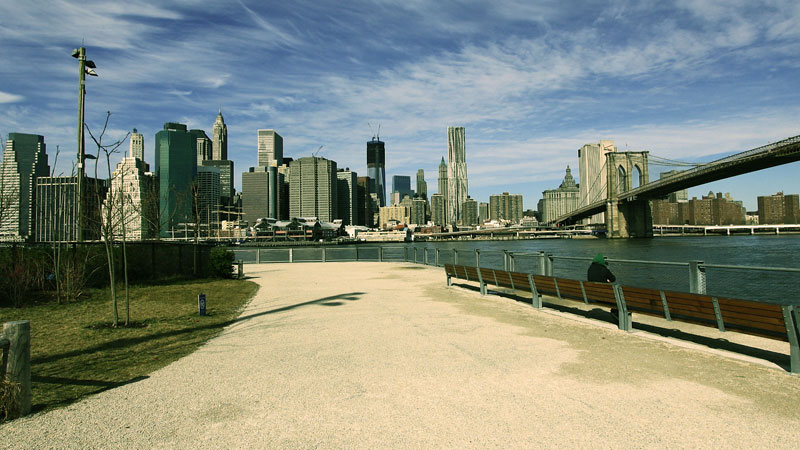
China’s Nuctech raided in EU over foreign subsidies concerns
BRUSSELS — Chinese security equipment company Nuctech’s Dutch and Polish offices were raided by EU competition regulators, the company said on Wednesday, as the European Commission cracks down on companies receiving unfair state subsidies which put EU peers at a disadvantage.
The European Commission has launched four investigations against Chinese companies since its foreign subsidies regulation introduced in July 2023 allowed the executive to assess whether subsidies allowed companies to submit overly advantageous offers in procurement tenders to edge out EU rivals.
“Nuctech offices in the Netherlands and Poland are being inspected by the European Commission in relation to the Foreign Subsidies Regulation,” partly-state owned Nuctech said in a statement.
“Nuctech is cooperating with the European Commission and is committed to defending its reputation of a fully independent and self-supporting economic operator,” the maker of security inspection scanners for airports and ports said.
The Commission on Tuesday announced dawn raids at an unnamed company in an unnamed EU country, which could lead to another investigation if the executive finds sufficient evidence of distortive subsidies.
“The Commission has indications that the inspected company may have received foreign subsidies that could distort the internal market pursuant to the Foreign Subsidies Regulation,” the Commission said in a statement.
Nuctech was blacklisted by the U.S. Bureau of Industry and Security, Commerce in 2020.
An official from China’s commerce ministry earlier condemned the raid, saying it interfered with the normal order of fair competition.
The China Chamber of Commerce to the EU said it was told that IT equipment and employees’ mobile phones were seized by regulators who also demanded access to data.
“The EU’s actions send a detrimental message not only to Chinese enterprises but to all non-EU companies conducting business in the bloc,” it said in a statement.
A Chinese Ministry of Commerce official said in a statement the raid undermined the confidence of all foreign enterprises in their operations in Europe and said China would take all necessary measures to safeguard the rights of its firms.
…
Spain’s prime minister says he will consider resigning after wife is targeted by judicial probe
BARCELONA, Spain — Spanish Prime Minister Pedro Sánchez denied corruption allegations against his wife but said he will consider resigning after the launch Wednesday of a judicial investigation into accusations by a right-wing legal platform that she used her position to influence business deals.
Sánchez said in a letter posted on his X account that while the allegations against his wife, Begoña Gómez, are false, he is canceling his public agenda until Monday when he will announce whether he will continue or step down.
“I need to stop and reflect,” Sánchez wrote. “I must answer the question if it is worth it to continue, given the mud pit the right and far right have made out of our politics, if I must continue at the helm of the government or renounce that highest of honors.”
Sánchez, 52, has been Spain’s prime minister since 2018. He was able to form a new left-wing coalition government in November to start another four-year term. He is one of Europe’s longest-serving Socialist leaders.
Earlier on Wednesday, a Spanish judge agreed to probe allegations of corruption made by a private group with a history of filing lawsuits mainly for right-wing causes. The court based in Madrid will consider the allegations and proceed with the investigation or toss it out.
“Begoña will defend her honor and collaborate with the justice system in every way that is required to clarify that these facts that appear scandalous are in fact nonexistent,” Sánchez said.
Gómez, 49, does not hold public office and maintains a low political profile.
Manos Limpias, or “Clean Hands,” accuses Gómez of allegedly having used her position to influence business deals. The court did not provide further information and said that the probe was under seal.
Manos Limpias describes itself as a union, but its main activity is a platform pursuing legal cases. Many have been linked to right-wing causes. It acts as the “popular prosecution,” a peculiarity of Spanish law that allows individuals or entities to take part in certain criminal cases even when they haven’t been directly harmed by the accused.
Justice Minister Félix Bolaños called the new allegations “false.”
Second Deputy Prime Minister Yolanda Díaz, the leader of the junior member of Sánchez’s government, publicly backed him against “this offensive by the Right.”
The possibility of a governmental crisis comes just weeks before important regional elections in Catalonia followed by European elections in June.
Sánchez accused online news sites politically aligned with the leading opposition conservative Popular Party and the far-right Vox party of spreading what he called “spurious” allegations that he said led to the judicial probe.
The Popular Party criticized Sánchez for “playing the role of the victim instead of holding himself accountable.”
Last month, Spain’s government watchdog for conflict of interests tossed out a complaint made by the Popular Party against Sánchez whereby the opposition party claimed that Gómez had allegedly influenced her husband in a decision related to an airline.
Spain’s leader said that he was moved in part to reflect on his future due to his love for his wife.
“This attack is without precedent, it is so serious and coarse that I need to stop and reflect with my wife,” he said. “Most of the time we forget that politicians are people. And I do not blush to say it, but I am a man who is deeply in love with my wife, who is living with the feeling of impotence while being pelted with mud.”
“To summarize, this is an operation to harass me by land, sea and air to try and make me give up politics through a personal attack on my wife,” Sánchez wrote.
…
Amnesty: Global rule of law on brink of collapse, fueled by AI
A breakdown in the international rule of law is being accelerated through rapid advancement in technology and artificial intelligence, which risks a “supercharging” of human rights violations. That’s according to the new annual report by rights group Amnesty International. Henry Ridgwell has more.
…
Amnesty: Global rule of law on brink of collapse, fueled by AI
London — A breakdown in the international rule of law is being accelerated through rapid advancement in technology and artificial intelligence, which risks a “supercharging” of human rights violations, according to an annual report, by Amnesty International, published April 24.
“The international rules-based order is on the brink of collapse. The violations of international law have been multiple and have increased, in fact, largely because of the increasing number of armed conflicts. Perpetrators not only violate international law but seek to justify those violations in the name of self-defense, national security, or counterterrorism,” Amnesty’s secretary-general, Agnes Callamard, told VOA.
Gaza violations
Amnesty highlights the conflict between Israel and Hamas in Gaza. The Hamas-run health ministry in Gaza says more than 34,000 people have been killed, most of them women and children. The figure, which includes Hamas combatants, cannot be independently verified.
“In a conflict that defined 2023 and shows no sign of abating, evidence of war crimes continues to mount as the Israeli government makes a mockery of international law in Gaza. Following the horrific attacks by Hamas and other armed groups on 7 October, Israeli authorities responded with unrelenting air strikes on populated civilian areas often wiping out entire families, forcibly displacing nearly 1.9 million Palestinians and restricting the access of desperately needed humanitarian aid despite growing famine in Gaza,” the report says.
Amnesty’s Callamard said the Gaza conflict had seen “the greatest number of journalists killed, and the greatest number of humanitarian actors killed.”
Israel strongly denies breaking the Geneva Convention or targeting civilians, whom it says Hamas uses as human shields. Israel also denies blocking relief supplies into Gaza despite numerous such accusations from aid groups.
UN paralysis
Amnesty’s report says Israel’s Western allies have failed to stop the bloodshed, citing “the USA’s brazen use of its veto to paralyse the UN Security Council for months on a much-needed resolution for a ceasefire, as it continues to arm Israel with munitions that have been used to commit what likely amounts to war crimes.”
The United States has repeatedly defended its support for Israel, asserting that its ally has the right to defend itself following the October 7 terror attacks by Hamas that killed more than 1,100 people, with dozens of hostages still being held in Gaza.
Russia’s invasion of Ukraine
The report also highlights widespread human rights abuses and law violations by Russia in its illegal invasion of Ukraine, including “indiscriminate attacks on densely populated civilian areas, as well as energy and grain export infrastructure; and the use of torture or other ill-treatment against prisoners of war.” Moscow denies such accusations.
The global order built in the wake of World War II is breaking down, warned Amnesty’s Callamard. “We are witnessing a rule-based order on the brink of collapse because the architects of the 1948 system, the architects of that system are failing it and are failing the people.”
Amnesty highlights a worsening civil conflict in Sudan, which it says has triggered the largest displacement crisis in the world, with more than 8 million people forced to flee. The report also highlights China’s role in providing support to Myanmar’s military junta, in its war on minority groups and crackdown on basic human rights.
Big tech and AI
Amnesty also warns of a disturbing convergence of human rights abuses and technology, including artificial intelligence, or AI.
“In an increasingly precarious world, unregulated proliferation and deployment of technologies such as generative AI, facial recognition and spyware are poised to be a pernicious foe – scaling up and supercharging violations of international law and human rights to exceptional levels,” the report said.
Amnesty said the technologies pose significant risks as huge numbers of people across the globe vote in elections in 2024.
“Politicians have long used manipulation of ‘us vs. them’ narratives to win votes and outmanoeuvre legitimate questions about economic and security fears. We’ve seen how unregulated technologies, such as facial recognition, have been used to entrench discrimination.”
“Coupled with this, Big Tech’s surveillance business model is pouring fuel on this fire of hate, enabling those with malintent to hound, dehumanize and amplify dangerous narratives to consolidate power or polling. It’s a chilling spectre of what’s to come as technological advances rapaciously outpace accountability,” the report said.
…
Channel tragedy spotlights Britain’s Rwanda migrant law
London — French authorities say a 7-year-old girl was among five migrants who drowned in the English Channel on Tuesday just hours after British lawmakers voted through legislation aimed at deterring asylum-seekers from making the crossing.
Local officials said the inflatable dinghy carrying some 112 people hit a sandbank after leaving a beach near the village of Wimereux.
“A few hundred meters from the shore, the engine stopped, and several people fell into the water,” said Jacques Billant, prefect of the French Pas-de-Calais region.
“Despite this complex and delicate situation, 57 people who were still in the inflatable boat remained on board. Not willing to be rescued, they managed to restart the engine and decided to continue their sea route towards Britain,” Billant told reporters.
Such is the determination of the migrants to reach British shores. Over 6,300 people have made the journey across the English Channel in small boats so far this year.
The tragedy happened early Tuesday morning, a few hours after British lawmakers passed legislation that the government hopes will allow it to deport asylum-seekers arriving in small boats across the English Channel to Rwanda for processing.
The migrants would be processed in the African state and have no right to return to Britain, even those granted refugee status.
The legislation effectively orders the courts to ignore existing British laws or international treaties that could block the deportations. Britain’s Supreme Court ruled the policy was illegal in November 2023, as there was a risk that refugees could be sent from Rwanda back to their countries of origin. It is unclear if further legal challenges could delay the flights.
British Prime Minister Rishi Sunak said the prospect of being sent thousands of kilometers away to Rwanda will deter migrants from making the journey to Britain.
“The first flight will leave in 10 to 12 weeks. Now, of course, that is later than we wanted. But we have always been clear that processing will take time,” Sunak said Monday evening after the legislation passed.
The government argues the policy is moral, as it aims to end the dangerous journeys operated by people smugglers. But both the United Nations High Commissioner for Refugees and the High Commissioner for Human Rights have called for Britain to rethink the legislation.
“By shifting the responsibility for refugees, reducing the U.K. courts’ ability to scrutinize removal decisions, restricting access to legal remedies in the U.K. and limiting the scope of domestic and international human rights protections for a specific group of people, this new legislation seriously hinders the rule of law in the U.K., and it sets a perilous precedent globally,” Ravina Shamdasani, a spokesperson for the High Commissioner for Human Rights, said at a news briefing Tuesday in Geneva.
Under the deal, Britain pays Rwanda at least $458 million over five years, with extra payments on top worth tens of thousands of dollars for each migrant sent to the country. The opposition Labour Party has called it an “expensive gimmick” that won’t work.
The passing of the legislation after years of wrangling and court battles is being seen as a political victory for Sunak. Whether the policy deters migrants from making the deadly journeys across the English Channel remains to be seen.
Migrant support groups dispute Sunak’s claims that the policy will stop the boats.
“We will not see the boats stop because of this [Rwanda policy]. We will see more deaths, we will see more dangerous risks being taken,” Kay Marsh of the migrant charity Samphire told Reuters.
…
Azerbaijan says ‘closer than ever’ to Armenia peace deal
Baku, Azerbaijan — Azerbaijani President Ilham Aliyev said on Tuesday a peace deal with Armenia was closer than ever before, as teams from both countries began demarcating the border in a bid to end decades of territorial disputes and clashes.
Aliyev’s optimism comes amid progress on marking the border despite protests in Armenia, still bruised after Baku seized control of the contested Nagorno-Karabakh region in a lightning offensive last year.
On Tuesday, teams from both countries installed the first border marker after officials had agreed to delimit a section based on Soviet-era maps.
“We are close as never before,” Aliyev said on Tuesday of an elusive peace deal.
“We now have a common understanding of how the peace agreement should look like. We only need to address details,” he said.
“Both sides need time… We both have political will to do it.”
Armenian Prime Minister Nikol Pashinyan last month agreed to return four border villages that were part of Azerbaijan when the two countries were republics of the Soviet Union.
Aliyev said Tuesday he had accepted a proposal by Kazakhstan to host a meeting of their foreign ministers.
Several countries have tried to play mediator — including Russia, Iran, the United States, France and Germany — but years of talks have failed.
Aliyev downplayed the need for third party intervention.
“We are not talking about any kind of mediation, because what happens now on our border demonstrates that when we are left alone… we can agree sooner than later,” he said.
Experts from both countries installed the first marker on Tuesday, they announced in identical statements.
Rallies had earlier erupted in Armenia, with protestors briefly blocking traffic at several points on the Armenia-Georgia highway, fearful of giving up more land.
Yerevan said Tuesday it would not transfer “Armenia’s sovereign territory.”
The four abandoned settlements that are to be returned to Azerbaijan — Lower Askipara, Baghanis Ayrum, Kheirimly and Gizilhajili — were taken over by Armenian forces in the 1990s, forcing their ethnic Azerbaijani residents to flee.
But Armenian residents of nearby villages worry they will end up isolated from the rest of the country and that some houses could fall into Azerbaijani territory.
The area has strategic importance for landlocked Armenia: Several small sections of the highway to Georgia — a vital trade artery — could be handed over.
The delimited border will run close to a major Russian gas pipeline, in an area that also offers advantageous military positions.
Pashinyan has insisted on the need to resolve the border dispute “to avoid a new war.”
On Saturday, he said Russian guards deployed in the area since 1992 would be replaced “and border guards of Armenia and Azerbaijan will cooperate to guard the state border on their own.”
Border delimitation was a “significant change,” he said, adding: “now have a border and not a line of contact, which is a sign of peace.”
Last autumn, Azerbaijani troops recaptured the breakaway Nagorno-Karabakh region from Armenian separatists in a one-day offensive that ended a bloody three-decade standoff over the region.
But lingering territorial claims have continued to threaten a fresh escalation.
Baku has claims over four more villages located in exclaves deeper in Armenian territory.
It is also demanding the creation of a land corridor through Armenia to connect the mainland to the Nakhichevan exclave and onwards to close ally Turkey.
Yerevan, in turn, points to its own exclave in Azerbaijan and pockets of land Baku has seized over the last three years outside of Karabakh.
…
Turkey arrests pro-Kurdish reporters in ‘terrorism’ probe, relative says
Istanbul — Nine Turks working for pro-Kurdish media outlets were arrested Tuesday in Turkey, their employers and lawyers said, with a relative of one saying they were accused of “terrorist activities.”
Four women and five men were arrested at dawn in Istanbul, the capital Ankara, and the southeastern city of Urfa, lawyers from the Media and Law Studies Association (MLSA), a press freedom organization, said.
MLSA said those arrested work for news organizations including the Mezopotamia Agency and the newspaper Yeni Yasam and include several journalists and “press employees.”
The nine were denied access to their lawyers for 24 hours, MLSA said in a message on X.
“No declaration has been made about the reasons for the detention of the journalists” on Tuesday morning, it said.
Mezopotamia said one of its journalists was arrested in Ankara during “a police operation at his home.”
A relative of one of the journalists, who asked not to be named, told AFP the police showed up at the journalist’s home at dawn.
She said the families of the journalists had been informed that their arrests were “part of an investigation opened in 2022 for terrorist activities.”
The journalists based in Istanbul were being held on Tuesday in a police station in the city, she said.
The international press freedom organization Reporters Without Borders, contacted in Istanbul, said it was “monitoring the situation closely.”
Elsewhere, Belgian police searched the studios of two Kurdish channels, Sterk TV and Medya News, that broadcast from Belgium, the two media outlets said in a statement to AFP.
The Belgian public prosecutor’s office said in a statement on Tuesday that the searches were carried out “during the night” “at the request of the French judiciary,” which is seeking to “establish possible evidence of terrorist financing.
A source close to the police operation who asked not to be named told AFP those raids had “no link” to the arrests in Turkey.
…
UK announces $620 million in new military aid for Ukraine, plan to up own defense spending
Warsaw, Poland — U.K. Prime Minister Rishi Sunak announced Tuesday that the country is to increase defense spending to 2.5% of GDP by the end of the decade.
Sunak made the announcement during a visit to Warsaw, where he also described a new pledge to send arms to Ukraine.
He said the government is putting the U.K.’s defense industry “on a war footing,” describing it as the “biggest strengthening of our national defense for a generation.”
“In a world that is the most dangerous it has been since the end of the Cold War, we cannot be complacent,” he said at a news briefing in Warsaw alongside NATO secretary general Jens Stoltenberg. “As our adversaries align, we must do more to defend our country, our interests and our values.
The announce followed the U.K. pledging an additional $620 million in new military supplies for Ukraine, including long-range missiles and 4 million rounds of ammunition, at a time when Ukraine is struggling to hold off advancing Russian forces on the eastern front line of the war, now in its third year.
Sunak spoke with Ukrainian President Volodymyr Zelenskyy to confirm the assistance and “assure him of the U.K.’s steadfast support for Ukraine’s defense against Russia’s brutal and expansionist ambitions,” Sunak’s office said.
Ahead of the visit the U.K. government said Sunak would announce 500 million pounds ($620 million, 580 million euros) in new British military supplies, including 400 vehicles, 60 boats, 1,600 munitions and 4 million rounds of ammunition. The shipment will include British Storm Shadow long-range missiles, which have a range of some 150 miles (241 kilometers) and have proved effective at hitting Russian targets.
“President Zelenskyy thanked the prime minister for the U.K.’s continued support, saying the new military assistance would make a material difference to ordinary Ukrainians fighting on the front line to defend their country,” Downing Street said.
However, Downing Street did not indicate whether the aid would be immediately available for delivery. Zelenskyy has pleaded for greater international assistance, warning that his country will lose the war without it.
The announcement came three days after the U.S. House of Representatives approved $61 billion in aid for Ukraine, as American lawmakers raced to deliver a fresh round of U.S. support to the war-torn ally. The Senate was expected to vote on the package Tuesday.
Ammunition shortages over the past six months have led Ukrainian military commanders to ration shells, a disadvantage that Russia has seized on this year — taking the city of Avdiivka and currently inching towards the town of Chasiv Yar, also in the eastern Donetsk region.
…
Russian media: Kremlin plans to deploy ballistic missiles on Finnish border
LONDON — Russian media report that the Kremlin plans to deploy ballistic missiles close to its border with Finland. It’s the latest in a series of military and hybrid threats that Russia has made against the Nordic state since it joined NATO in April last year in the wake of Moscow’s invasion of Ukraine.
The Russian newspaper Izvestia reported Monday that a new brigade will be deployed in the Karelia region bordering Finland, equipped with an Iskander-M ballistic missile system.
The Izvestia report quoted an ex-commander of Russia’s Baltic Fleet, Admiral Vladimir Valuev, who told the newspaper that “the formation of a missile brigade is a very timely decision. This is an adequate response to Finland’s accession to NATO.”
Despite the proximity to Finland, the potential deployment is not raising alarm bells in Helsinki, said security analyst Charly Salonius-Pasternak of the Finnish Institute of International Affairs.
“This is really not news. And of course, announcing a thing and then doing something about it are two very different things when it comes from Russia. So overall, we really haven’t seen a lot other than rhetoric,” he told VOA.
Finland has warned that it is facing varied security and hybrid threats from Russia since it joined NATO.
In the second half of 2023, following Finland’s accession to the alliance, over 1,300 migrants from countries including Yemen, Syria and Somalia began to arrive at the Finnish-Russian border to try to claim asylum.
Helsinki closed all crossing points along the frontier in November, accusing the Kremlin of weaponizing migration. They were reopened briefly, but swiftly closed again after another surge in migrant arrivals. The closure was extended indefinitely earlier this month.
Finland wants the European Union to help in preventing any future migrant crisis.
Finnish Prime Minister Petteri Orpo hosted the European Union’s Commission President Ursula von der Leyen on a tour of the border region Friday.
“Now we have to find common solutions to stop this phenomenon when Russia uses illegal immigrants against us. We are preparing our own legislation, but we also need EU-level measures,” Orpo said.
Von der Leyen pledged the EU’s support. “This is a new phenomenon. It is a hybrid threat, and it has to be dealt (with) as a hybrid threat to national security. And what we see is that a state is instrumentalizing poor people to put pressure on another state. So that is a clear security issue, and we will certainly be dealing for quite a long time with that, and we will have to prepare for that,” she told reporters at the Imatra border crossing on the Russian frontier.
Finland is building a fence along part of the 1,340-kilometer (833-mile) border and increasing patrols. The government is debating legislation to block asylum-seekers entering from Russia. Von der Leyen said any such measures must strike a balance between protecting security and international obligations on the rights of refugees.
The threats go beyond a migrant crisis, said analyst Charly Salonius-Pasternak.
“The Russian security services, once some of these individuals have gotten to Finland, are seeking to recruit them to then cause further mayhem within Finland.”
It’s part of Russia’s hybrid campaign against Finland and other NATO allies, Salonius-Pasternak added.
“The Russian land forces are, of course, engaged in Ukraine, so we really haven’t seen a lot of (military threats), except some posturing. But there’s certainly an expectation from the Finnish authorities that cyber-attacks, maybe other attacks on infrastructure, as well as this weaponization of humans, will continue. Now that winter is slowly receding here, the long border becomes, of course, much more passable.”
Russia denies trying to create a migrant crisis on the Finnish border. Moscow has described Finland’s accession to NATO as a “historic mistake” that would force it to take what it called “countermeasures.”
…
Turkey hosted Hamas leader amid growing criticism over inaction in Gaza
Istanbul/Washington — Turkish President Recep Tayyip Erdogan welcomed Hamas political chief Ismail Haniyeh and his delegation last weekend in Istanbul amid growing criticism in Turkey of his government’s stance on the Israel-Hamas war.
There was no news conference after the meeting. Erdogan’s office released a statement on the topics discussed with Haniyeh, who lives in exile in Qatar.
According to the statement, Erdogan and the Hamas leader talked about “Israel’s attacks on Palestinian territory, especially Gaza, what needs to be done to ensure adequate and uninterrupted delivery of humanitarian aid to Gaza, and a fair and lasting peace process in the region.”
Erdogan also emphasized the importance of Palestinians acting in unity, which he called “the most robust response to Israel and the way to victory go through unity and integrity.”
In another statement, Erdogan’s ruling Justice and Development Party (AKP) revealed that a Hamas delegation, including key members of the militant group, was present in the meeting.
Haniyeh’s visit came at a time when Erdogan’s stance on the Israel-Hamas war and his support for the Palestinian people were questioned by the Islamist New Welfare Party, which came in third nationally in the local elections last month.
On April 9, Turkey’s Trade Ministry announced export restrictions of several product groups to Israel as a response growing calls in Turkey for a boycott.
Some analysts think that Erdogan’s meeting with Haniyeh is to consolidate his base.
“AKP and Erdogan have been very worn out recently regarding the Palestine issue after it was revealed that there was trade with Israel,” Erhan Kelesoglu, an Istanbul-based Middle East expert, told VOA.
“Meeting with Hamas leaders actually provides President [Erdogan] with the opportunity to refresh his image before the public. It shows that he is behind the Palestinian cause and Hamas,” Kelesoglu added.
On April 17, Turkish Foreign Minister Hakan Fidan went to Doha, Qatar, where he met Haniyeh.
Later in a joint news conference with his Qatari counterpart, Sheikh Mohammed bin Abdulrahman al-Thani, Fidan said that Hamas has accepted the establishment of a Palestinian state with the 1967 borders.
“They have told me that following the establishment of the Palestinian state, Hamas would no longer need an armed wing and they would continue as a political party,” Fidan said.
Some experts view Ankara’s recent involvement with Hamas as its intent to play a mediator role.
“Turkey intends to reassert its influence in the region by playing a mediator role, particularly as Qatar’s mediating capacity reaches its limits, and Turkey has recently emerged as one of the intermediary countries in relations with Iran,” Evren Balta, a non-resident scholar at Middle East Institute (MEI) in Washington, wrote in an analysis for MEI’s blog.
“However, it is unlikely that either Israel or the United States will agree to the role that Turkey wishes to play or see the dissolution of the military wing of Hamas as a sufficient move to engage with the organization,” Balta added.
Israel’s reaction
Following the meeting on April 20, Israel’s Foreign Minister Israel Katz shared a photo of Erdogan shaking hands with Haniyeh on his X account.
“Erdogan, shame on you,” Katz wrote in a post in Turkish. He also listed his allegations of “rape, murder, and the desecration of corpses” committed by “the Muslim Brotherhood.”
Hamas shares the Islamist ideology of the Muslim Brotherhood, which Erdogan’s AKP also backed in the past.
Oncu Keceli, Turkey’s Ministry of Foreign Affairs spokesperson, reacted to Katz’s statement on X, saying, “It is the Israeli authorities who should be ashamed. They have massacred nearly 35,000 Palestinians, most of them women and children.”
“Türkiye’s priority is to bring the massacre in Gaza to an end, and the establishment of a Palestinian state to ensure lasting peace in our region,” Keceli added.
More than 34,000 people have been killed, Palestinian health authorities say, since the beginning of the war in Gaza last October.
Comparison with Turkish militia
On April 17, in his ruling AKP’s parliamentary group meeting, Erdogan accused critics of his handling of the Israel-Gaza war of slandering him, his party, his government, and the Turkish Republic.
“Some of our steps may not be visible. We may not be able to explain some of what we do. However, those who question our sensitivity on Palestine will sooner or later be embarrassed and disgraced,” Erdogan said.
“I say it very clearly and openly: Hamas is the same as Kuva-yi Milliye in Turkey during the war of independence,” Erdogan added.
He also called Hamas “a group of mujahideen waging a battle to protect its lands and people” in the past after the Oct. 7 attack. Mujahideen is an Arabic word meaning those who fight for Islam.
The U.S., the U.K. and European Union have listed Hamas as a terrorist organization.
Kuva-yi Milliye, founded in 1918, is the name of the Turkish militia forces that fought in the early period of Turkey’s War of Independence and was later organized under the command of Mustafa Kemal Ataturk, the founder of modern Turkey.
Erdogan’s statement stirred a debate in Turkey as the main opposition Republican People’s Party (CHP) rejected such a similarity between Turkish national forces and the Palestinian militant group Hamas.
“Identifying Hamas with Kuva-yi Milliye means ‘the Palestinian cause started with Hamas.’ However, everyone knows very well that the [Palestinian] struggle is a struggle that has lasted for decades. And it certainly did not start with Hamas,” Oguz Kaan Salici, CHP’s Istanbul deputy and a Turkish Parliament’s Commission of Foreign Affairs member, told VOA.
CHP calls for a two-state solution between the Israelis and Palestinians.
…
Russian media: Kremlin will deploy ballistic missiles close to Finnish border
Russian media say the country plans to deploy ballistic missiles close to its border with Finland. Analysts say it’s the latest in a series of military and hybrid threats that Russia has made against Finland since it joined NATO last year in the wake of Moscow’s invasion of Ukraine. Henry Ridgwell reports.
…




